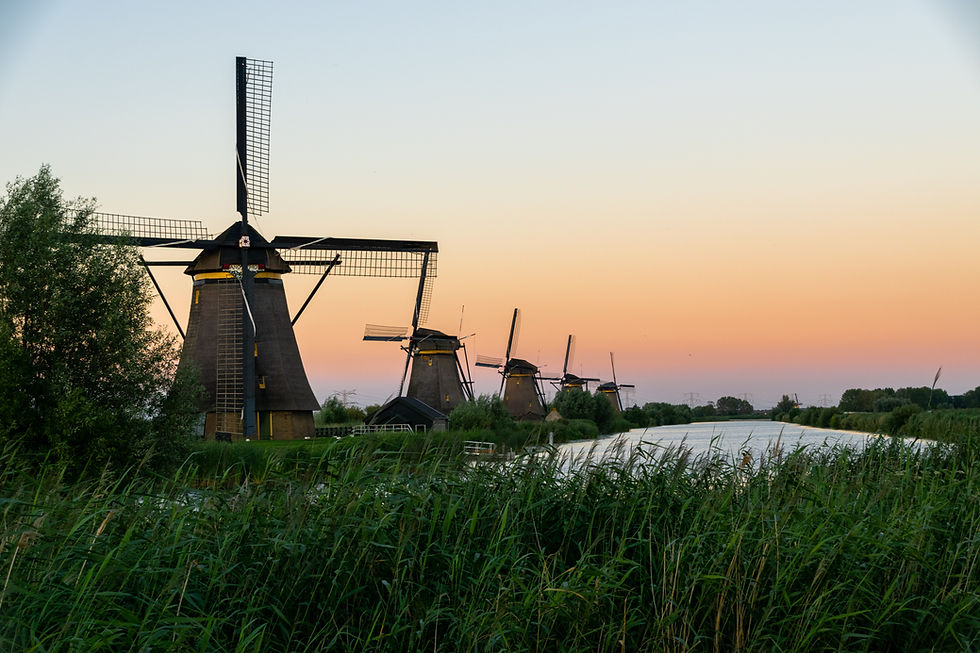The challenges of cannabis trials in the Netherlands: a closer look
- FRENCHY CANNOLI
- Mar 7, 2024
- 2 min read

Get ready, green aficionados! The Netherlands is penning a new chapter in cannabis history. This country, synonymous with liberal cannabis policies, has embarked on an epic journey towards regulating its sector through regional commercial experiments for adult use. Launched in December 2023, these experiments aim to integrate growers, retailers, and consumers within a legal framework for research purposes, marking a significant step in the evolution of the nation's cannabis policy.
At a Political Crossroads: A Test for Cannabis Experiments
Despite the experiments' infancy, a wave of political opposition threatens to derail the Dutch cannabis experiment. The largest political party, the PVV, along with ChristenUnie, SGP, and CDA, has expressed a desire to stop the experiments pending a new coalition agreement. This political landscape presents a unique challenge, highlighting the delicate balance between progressive initiatives and conservative viewpoints within the country.
A Divided Nation
While opposition strengthens from certain political factions, support remains steadfast among others, including the GroenLinks-PvdA, D66, and VVD parties. This division underscores the complex interplay between politics and policymaking in the realm of cannabis regulation, with the future of the Dutch cannabis experiments hanging in the balance.
Amsterdam and Beyond: A Legacy of Cannabis Culture
Amsterdam's coffeeshops have long been a beacon for international cannabis enthusiasts, embodying the Netherlands' tolerant stance towards cannabis. However, this historical tolerance has often clashed with legal realities, prompting the need for a structured approach to bridge the gap between policy and practice through regulated experiments.
The Ambitions of the Experiments
The government's vision for the cannabis experiments was clear: to explore the viability of a quality-controlled cannabis supply to coffeeshops and assess the impact on crime, safety, and public health. This ambitious experiment required special legislation, reflecting a significant effort to harmonize the nation's cannabis policy with its long-standing cultural acceptance.
Municipal Engagement and Legislative Journey
In September 2019, ten municipalities were chosen to pioneer the cannabis experiments, with legislative support materializing through the House of Representatives and the Senate in 2019. This legislative groundwork promised a new era for some of the estimated 570 cannabis-selling coffeeshops in the Netherlands, offering a path to legal participation in the experiments.
Delays and Developments
Originally scheduled for 2021, the experiments faced delays, attributed to challenges in securing a legal supply chain. Despite these hurdles, December 2023 saw the launch of experiments in Breda and Tilburg, with Arnhem, Almere, Groningen, Heerlen, Hellevoetsluis, Maastricht, Nijmegen, and Zaanstad also selected. This marked a significant milestone, albeit later than anticipated, in the nation's cannabis policy reform.
Global Context: The Dutch Experiment in Perspective
The Dutch cannabis experiments are not isolated efforts but part of a broader international movement exploring regulated cannabis markets. Similar initiatives in Switzerland and planned trials in Germany highlight a growing global interest in understanding and shaping cannabis policy through empirical research.
Implications for the Future
The outcomes of the Dutch cannabis experiments could have far-reaching implications, potentially influencing international cannabis policy and offering insights into the complexities of regulating an industry that has long operated in a gray area between tolerance and legality.



Comments